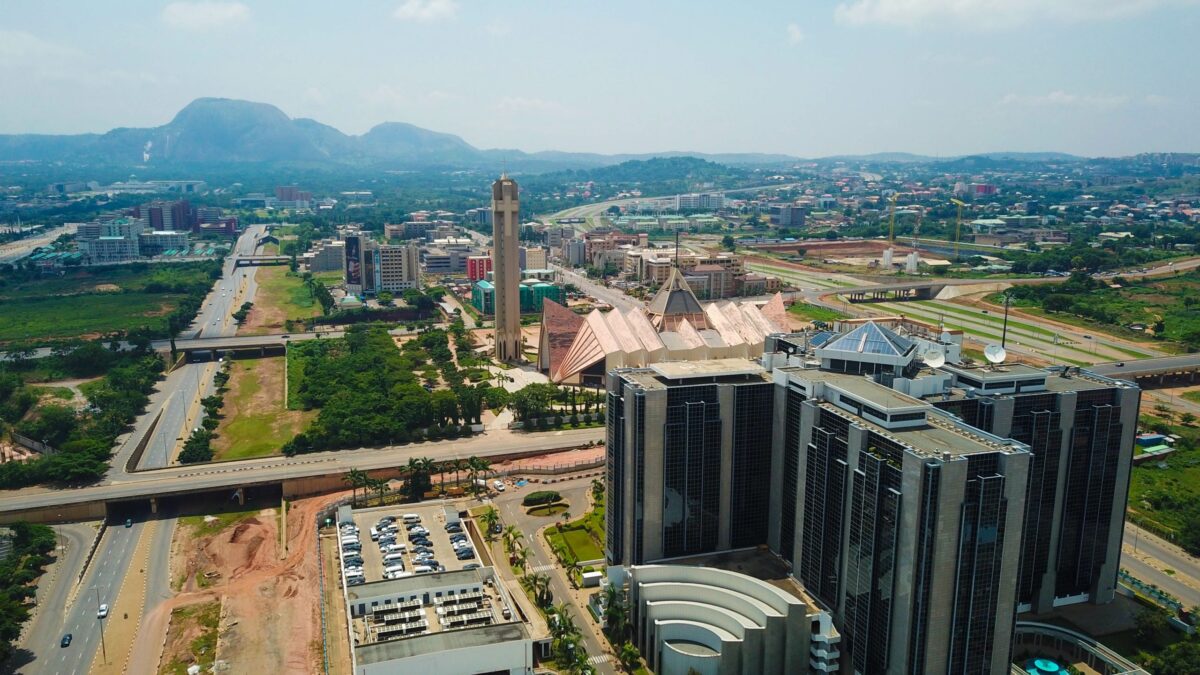
Nigeria’s infrastructure finance gap is estimated to be over USD 3 trillion over the next 30 years. Long-term patient capital is key to progressing infrastructure projects, however, accessing such funds in Nigeria can be challenging. Companies have struggled to issue bonds on Nigeria’s capital markets which meet with the high credit rating requirements of investors such as pension funds and insurance companies. Nigerian pension funds are authorised to invest up to 35 per cent of their assets in corporate bonds, including 15 per cent in infrastructure bonds and corporate bonds, which translates to about USD 6 billion in Naira equivalent. But they used to have almost no investment in that asset class compared to the industry’s total assets under management. This is primarily because these institutional investors had traditionally been unfamiliar with the infrastructure asset class, having concentrated their investments primarily in federal government securities, and therefore being reluctant to take on credit risk for infrastructure projects.

InfraCredit is a specialised institution that provides Naira-denominated guarantees to enhance the credit quality of local currency debt instruments issued to finance infrastructure projects in Nigeria. PIDG partnered with the Nigeria Sovereign Investment Authority to establish InfraCredit in 2017, with an initial contingent capital of USD25 million via its guarantee solution, GuarantCo.
In a bid to enable these domestic pension funds and insurance companies to diversify their portfolios and unlock finance for vital infrastructure development, the Private Infrastructure Development Group (PIDG) worked with the Nigerian Sovereign Investment Authority (NSIA) to establish the Nigerian Infrastructure Credit Enhancement Facility (InfraCredit) in 2017.
This PIDG investment, through its guarantee solution, GuarantCo, was a first of its kind for Nigeria. Set up as a credit enhancement facility (CEF), it was designed to unlock domestic investment in infrastructure on a scale not seen previously. It was also the first local currency guarantee facility in the world targeting infrastructure in frontier markets.
Since its establishment, InfraCredit has successfully guaranteed over 22 transactions amounting to over USD120 million, crowding in over 21 domestic institutional investors which accounted for circa 60 per cent of total pension fund assets in the country. These transactions have been across sectors, i.e., renewable energy, off-grid power, transport and logistics, telecommunications and others inputting into infrastructure development. Most of these projects had first-time access to local currency finance of up to 20-year tenor from the domestic bond market.
In February 2019, with InfraCredit’s guarantee, North South Power (NSP) tapped the local debt capital markets as a first-time issuer to raise NGN8.5billion via bonds (AAA-rated). The transaction constituted the first certified corporate green bond and the longest tenored (15-year) corporate bond issued in the Nigerian debt capital markets. In 2021, NSP was successful with a second infrastructure issuance of NGN6.325billion. On this occasion, the company was able to leverage its track record and strong credit history supported by InfraCredit’s guarantee of its first issuance, and did not require a guarantee again.
PIDG made an additional USD27m equity injection through its project development solution, InfraCo, in 2020 to support InfraCredit’s AAA credit rating and strengthen its balance sheet and overall guarantee capacity. The investment also enhanced its health and safety and anti-bribery and corruption (ABC) management systems, providing a demonstration effect for others operating in Nigeria’s nascent infrastructure and debt capital market. In turn, that increased InfraCredit’s ability to attract long-term local currency finance for bankable infrastructure projects in Nigeria. At the same time, the strong credit rating supported the financial sustainability of guarantees it provided.
Also in 2020, InfraCredit conducted a survey of select investors, which revealed that a capacity building programmes that was funded through PIDG technical assistance had contributed to pension fund actors’ ability to assess the risk of infrastructure assets and to understand what information was useful through the due diligence process.
Apart from pension funds, other investors in InfraCredit-guaranteed bonds include fund managers, insurance companies, banks and corporations. This variety signifies the strong investor appetite and confidence from domestic institutional players in its AAA credit rating.
InfraCredit has also reported a consistent year-on-year growth and a 1,000 per cent growth over the 2017-2022 period in its net investment income and net guarantee income.
In 2023, PIDG provided an additional USD25 million counter-guarantee with a 16-year tenor to InfraCredit via GuarantCo. This was in support of Lagos Free Zone Company’s (LFZC) three guaranteed infrastructure bond issuances totalling USD65.5 million to finance continued development of the Lagos Free Zone being developed as the largest, integrated port-based economic zone in Nigeria. The zone shall serve as the industrial and maritime hub for Nigeria and west Africa.
Fundamental to its growth is InfraCredit’s theory of change, which hinges on three pillars – (i) expanding the market for infrastructure finance, (ii) enabling projects to access longer tenor capital and have high impact, and (iii) delivering greater access to infrastructure for improved livelihoods for end users. All three pillars are designed to deliver impact that is assessed using specific and measurable outcome indicators. So far, this impact has been reported across multiple UN sustainable development goals (SDGs), especially gender equality and decent work and economic growth. All its portfolio companies have a diverse board with women representing 20-30 per cent of the membership. Over 1,000 small and medium-sized enterprises have been supported, while over one million people have benefited from improved access to infrastructure.
In addition, InfraCredit has committed to making its portfolio more aligned to the Paris Agreement for a clean energy transition by 2040, with 75 per cent renewable energy or energy efficiency investments in its power portfolio.